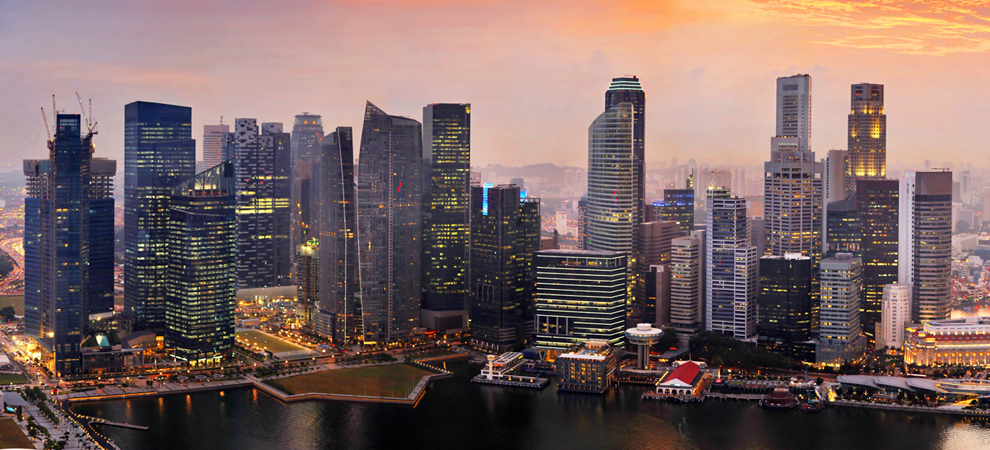The WPJ
THE WORLD PROPERTY JOURNALReal Estate Facts Not Fiction
Commercial Real Estate News

Coronavirus Still Impacting Singapore's Commercial Property Market in Q3
Commercial News » Singapore Edition | By Michael Gerrity | November 6, 2020 8:15 AM ET
According to real estate consultant Edmund Tie, the office climate in Singapore was relatively subdued in Q3 2020 as the majority of the workforce continued to work from home as a default venue from the COVID-19 pandemic.
Conditions remained challenging in the retail sector, especially in Orchard/Scotts Roads due to the dearth of tourist arrivals. However, malls in the Fringe/Suburban areas fared better given their proximity to residential catchments and first-story rents saw limited declines.
In the industrial sector, demand was driven by the F&B, logistics and warehousing segments. Mr. Lam said: "Regulatory constraints continue to limit the dine-in capacity at various outlets. F&B operators have adapted by offering more food delivery and takeout options. Some of the bigger restaurant chains took up industrial space to consolidate their operations or house a central kitchen. As a result, there had been significant leasing demand originating from central kitchens."
There was also demand coming from logistics and warehousing on the back of robust demand coming from e-commerce services and stockpiling activities done by supermarkets.
Mr. Lam said, "While the overall outlook for the industrial sector is expected to brighten gradually as global manufacturing recovers, this progression is expected to be uneven across different sectors. For instance, rising online and groceries sales will incentivize retailers to stockpile and expand their warehouse facilities to cater to the increasing demand.
"In additional to economic factors, demand for industrial properties is also largely dependent on location and efficiency of floor plates. Industrial developments that are located close to transportation nodes and have efficient floor plates will therefore enjoy greater advantage in attracting tenants. Landlords of older developments could make use of this soft climate to upgrade their facilities, so that they can meet with the demand when the market recovers," he added.
Sign Up Free | The WPJ Weekly Newsletter
Relevant real estate news.
Actionable market intelligence.
Right to your inbox every week.
Real Estate Listings Showcase
Related News Stories
Commercial Real Estate Headlines
- U.S. Commercial Mortgage Delinquencies Rise in Q2, CMBS Loans Lead the Surge
- Tokenization-Focused Real Estate Investment Bank Announced
- Commercial Cap Rates Edge Lower in U.S., Hinting at Market Turn
- WPV Targets New $6 Trillion Digital Real Estate Tokenization Opportunity
- $1 Trillion in Data Center Development Underway Through 2030
- WORLD PROPERTY VENTURES: The 'Anti-VC' of Real Estate Plans Major Capital Raise
- Multifamily Sector Enjoys Record Absorption in U.S. as Supply Slows, Vacancies Drop
- Employee Back-to-Office Attendance Surges in U.S.
- Phnom Penh Commercial Property Sectors Face Crosswinds in 2025
- World Property Bank Announced to Capitalize on Coming Trillion-Dollar Tokenization Boom
- REAL ESTATE PREDICTIONS: Decentralized Events Contract Exchange in Development
- U.S. Architecture Billings Improve Slightly in May
- Tokyo Office Demand Spills into Non-Core Wards in 2025
- AI Hyperscalers Drive Record Data Center Leasing in Early 2025
- Commercial, Multifamily Mortgage Debt in U.S. Hits Record $4.81 Trillion in Early 2025
- U.S. Multifamily Market Rebounds in Early 2025
- U.S. Office Market Experiences Historic Conversion Shift
- New York City Enters New Era of Office-to-Residential Conversions
- World Property Ventures Plans New Capital Raise
- U.S. Commercial Real Estate Lending Rebounds Sharply in Early 2025
- U.S. Multifamily Housing Confidence Declines in Early 2025
- Asia Pacific Commercial Investment Holds Steady in Early 2025
- Carnival Plans New Miami Headquarters Spanning Over 600,000 Square Feet
- Hong Kong Property Investors Take a Wait-and-See Approach Due to U.S. Tariffs
- U.S. Multifamily Buyer and Seller Sentiment Improves in Early 2025
- One Trillion Dollars of America's Commercial Property Loans Mature in 2025
- U.S. West Coast Dominates Self Storage Demand
- Phoenix, Orange County and Inland Empire Emerge as Leading U.S. Industrial Markets
- U.S. Mega Distribution Centers Leasing Activity Grew in 2024
- U.S. Commercial Borrowing to Increase to $583 Billion in 2025, Up 16 Percent Annually
- Demand for U.S. Life Sciences Space Spikes 28 Percent Annually in Late 2024
- Multifamily Property Sector in America Rebounding
- Asia Pacific Commercial Property Investment Spikes 23 Percent in 2024
- U.S. Commercial Property Market Primed for Growth in 2025
- Architecture Industry Sees Mixed Signals as 2025 Approaches
- Global Data Center Demand Spikes in 2025
- 2025 Prediction: U.S. Commercial Investment Recovery Expected to Gain Traction
- Holiday Retail Sales for 2024 to Hit Record $1 Trillion
- Tech, AI Industries Drive Largest Share of Office Leasing Activity in U.S.
- Commercial Real Estate Lending in U.S. Enjoys Strong Growth in Q3
Reader Poll
Marketplace Links
This website uses cookies to improve user experience. By using our website you consent in accordance with our Cookie Policy. Read More







